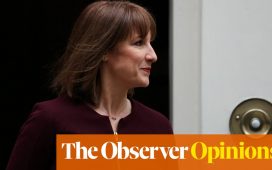UK Steel: Trump has taken a sledgehammer to free trade
The UK steel sector fears that Donald Trump’s new tariffs on steel will disrupt global trade, and lead to a surge of foreign steel into Britain – potentially hurting the domestic industry.
Gareth Stace, director general of trade body UK Steel, says:
“President Trump has taken a sledgehammer to free trade with huge ramifications for the steel sector in the UK and across the world.
This will not only hinder UK exports to the US, but it will also have hugely distortive effects on international trade flows, adding further import pressure to our own market.
Stace insists that UK steel isn’t a threat to US national security, and indeed is vital to American industry:
Our high-quality products serve key US industries, many of which cannot source these domestically. This is a moment where our countries should work together to tackle global steel overproduction, not to be at loggerheads. The UK stands with the US on tackling global excess steel capacity and unfair trade, and our industry urges the UK Government to take stronger action on these issues.
“This is clearly a new era for global trade. We are confident the UK Government recognises the impact on our industry and will explore all available options. Both immediate responses, such as negotiating a solution and long-term measures to prevent harmful trade diversion into the UK market, are options.”
Key events
BBC: UK will not immediately respond to US metal tariffs
The BBC are reporting that the UK will not retaliate immediately to the renewal of steel and aluminium tariffs by the US.
“Cool heads” were necessary to avoid escalating trade tensions with the Trump administration, UK government sources have said, adding that retaliatory tariffs may not be in the best interest of the industry.
UK ministers will meet the steel industry and unions later on Tuesday and visit key steel companies later this week, the Beeb’s Faisal Islam adds.
South Korea’s top think tank lowers economic growth projection, citing Trump’s tariffs
South Korea’s top economic think tank has slashed its growth forecast for the country’s economy for the second time in four months, Associated Press reports, expressing concern about the impact of U.S. President Donald Trump’s expanding tariffs.
The state-run Korea Development Institute now projects South Korea’s economy to grow by 1.6% in 2025, which is 0.4 percentage points lower than its previous estimate announced in November.
Kim Jiyeon, a KDI economist, said the “deterioration of the trade environment” following Trump’s inauguration was a major factor. South Korea is also grappling with political instability caused by the impeachment and criminal indictment of President Yoon Suk Yeol after he briefly imposed martial law in December.
Domestic demand remains weak due to slowing consumer spending and a declining job market, and the pace of exports is slowing with most key industries aside from semiconductors struggling to find momentum, said Jung Kyuchul, who heads KDI’s macroeconomic analysis department.
KDI could further lower its growth projections if Trump’s trade actions intensify or South Korea’s political turmoil drags on, Jung said.
Jung told a briefing:
“In November, we assumed that Trump’s steps to increase tariffs would proceed gradually over time and wouldn’t be carried out so quickly this year, but there have already been tariff increases targeting countries like China.”
“We expected that uncertainties would be gradually resolved after the Trump administration took office, but we are now in a situation where uncertainties have actually grown.”
Economics professor Justin Wolfers shows that the last time Donald Trump imposed tariffs on steel, it led to a small increase in jobs in steel making, but a larger fall in headcount among steel users:
Economists at Deutsche Bank have calculated that Donald Trump’s new metal tariffs will be inflationary.
If sustained, steel and aluminium tariffs combined with reciprocal tariffs could increase core PCE [an inflation measure] in 2025 by an additional 30-40bps (0.3 to 0.4 percentage points).
Deutsche’s Jim Reid says:
If the delayed Canada and Mexico tariffs were to ultimately go into effect as well, inflation in 2025 could be above 3.5%, though the assumption is that tariffs would have limited impact beyond this year.
While our economists’ baseline is that the Fed would prefer to “look through” the price level impact by keeping rates steady, their ability to do so could be constrained if inflation expectations begin to rise and / or the labour market reemerges as an additional source of inflationary pressure.
Recent data suggest both these outcomes cannot be fully discounted.
Any fears that the UK could suffer a ‘buyers strike’ on its debt should be eased by news of record demand at a bond sale this morning.
Investors placed record orders worth more than £140bn at the sale of a new 4.5% 2035 British government bond, Reuters reports.
£13bn of debt was available, with buyers attracted by the relatively high yields available on British bonds.
The timing, breadth and scope of US tariffs will fuel uncertainty, and act as a brake to economic growth, warns Karsten Junius, chief economist at J. Safra Sarasin Sustainable Asset Management:
The US economy started the year with strong momentum, and fundamentals remain solid. Under normal circumstances, these factors would justify an upward revision to our growth forecast. Yet President Trump’s decision to launch a global trade war – imposing steep tariffs on all imports from Mexico, Canada, and China – have led us to reconsider the growth revision.
Tariffs were not unexpected; Trump campaigned on protectionism. What was striking was the timing, scale, and scope of these measures. Shortly after taking office, he instructed federal agencies to review trade policy, suggesting a more methodical approach. But his latest move – slapping 25% tariffs on almost all imports from Mexico and Canada, effectively breaking apart USMCA, his own trade deal central to American manufacturing – was anything but methodical. The 10ppt tariff increase on Chinese imports, along with potential retaliatory measures, initially escaped much attention. But they are much more consequential for the US economy compared to what he did in his first term.
Although Trump later backtracked, offering a one-month reprieve to Mexico and Canada but kept tariffs on China, the real issue for businesses and investors is the lack of clarity about his ultimate aim. Even if the final tariff increases are relatively modest, heightened policy uncertainty will weigh on growth and fuel financial market volatility. As a result, our 2025 US GDP growth forecast remains unchanged at 2.2%.
Former US Treasury Secretary Larry Summers has warned that the US economy will suffer from Donald Trump’s new tariffs on steel and aluminium.
Posting on X, he says:
This will mean fewer American jobs, more American inflation and because of damage to us exports probably a bigger trade deficit. I do not see any national security gain from tariffing Canada.
I’m sorry that Trump’s threatened steel and aluminum tariffs have now been implemented.
This will mean fewer American jobs, more American inflation and because of damage to us exports probably a bigger trade deficit. I do not see any national security gain from tariffing Canada.
— Lawrence H. Summers (@LHSummers) February 11, 2025
Shares in European steelmakers have fallen this morning.
ArcelorMittal are down 1.3%, Voestalpine has dropped 1% each, while Thyssenkrupp has lost 2.7%.
Community calls for comprehensive safeguards to protect UK domestic steel
Community, the union for the steel industry, is urging the government to bring in new safeguards to prevent dumping of cheap foreign steel.
Alasdair McDiarmid, Community’s assistant general secretary, says:
“The new tariff confirmed by Donald Trump is a huge cause for concern, and represents a retrograde step for the steel industry and economies on both sides of the Atlantic.
“There is now an even greater need for comprehensive safeguards to protect our domestic steel from cheap overseas steel imports.”
UK Steel: Trump has taken a sledgehammer to free trade
The UK steel sector fears that Donald Trump’s new tariffs on steel will disrupt global trade, and lead to a surge of foreign steel into Britain – potentially hurting the domestic industry.
Gareth Stace, director general of trade body UK Steel, says:
“President Trump has taken a sledgehammer to free trade with huge ramifications for the steel sector in the UK and across the world.
This will not only hinder UK exports to the US, but it will also have hugely distortive effects on international trade flows, adding further import pressure to our own market.
Stace insists that UK steel isn’t a threat to US national security, and indeed is vital to American industry:
Our high-quality products serve key US industries, many of which cannot source these domestically. This is a moment where our countries should work together to tackle global steel overproduction, not to be at loggerheads. The UK stands with the US on tackling global excess steel capacity and unfair trade, and our industry urges the UK Government to take stronger action on these issues.
“This is clearly a new era for global trade. We are confident the UK Government recognises the impact on our industry and will explore all available options. Both immediate responses, such as negotiating a solution and long-term measures to prevent harmful trade diversion into the UK market, are options.”
Sky News’s Ed Conway has spotted that Ukraine will now face steel tariffs:
👀
Donald Trump has explicitly added Ukraine to the list of countries facing steel tariffs. Joe Biden had excluded it from tariffs because of the war. pic.twitter.com/B65f7w3qeR— Ed Conway (@EdConwaySky) February 11, 2025
Trudeau: Canada will stand up firmly to US tariffs
Canadian prime minister Justin Trudeau has said today that Canada would seek to highlight the negative impact of the United States’ steel and aluminium tariffs and that – if needed – the response from Canada would be firm and clear, Reuters reports.
Speaking on the sidelines of a major artificial intelligence summit in Paris today, Trudeau says:
“Canadians will stand up strongly and firmly if we need to,”
Trudeau also described the new tariffs as “unacceptable.”
Catherine Mann has also warned that the UK jobs market is weakening.
She tells her audience in Leeds:
I judge that the current and likely continued weak demand conditions will lead to a further loosening of the labor market which tend to follow non-linear dynamics.
Thus, even if near-term inflation expectations firm on the back of the inflation hump, these factors likely will restrain pass-through to wages and prevent second-round effects from setting in.
In layman’s terms, Mann appears to be warning that job creation will slow, and layoffs will increase, and that workers can forget about bumper pay increases even if inflation picks up.
She explains:
Already, the labour market has all but stopped adding jobs with employment nearly flat.
Vacancies are now below their pre-Covid level and the vacancies-to-unemployment ratio which we have often used to proxy for ‘tightness’ is now below the level that Bank researchers consider to be consistent with a balanced labour market.
Mann: Vote for big rate reduction ‘cut through the noise’
Bank of England policymaker Catherine Mann is now explaining why she voted for a half-point cut in interest rates last week, in a speech in Leeds.
Mann is telling Leeds Beckett University that her “activist” strategy demanded a call for a large reduction to borrowing costs, to cut through the noise.
[reminder: Mann and fellow policymaker Swati Dhingra were outvoted 7-2, with the majority at the Bank choosing a smaller rate cut]
Echoing the point she makes in her FT interview today, Mann says:
To conclude, as an activist policy maker, I chose 50 basis points now, along with continued restrictiveness in the future, and a higher long-term Bank Rate to
1) ‘cut through the noise’,
2) anchor expectations through the inflation hump, and
3) acknowledge structural impediments and macroeconomic volatility in longer term.
EU vows to respond firmly to ‘unjustified’ tariffs
The European Union has vowed to respond firmly to ‘unjustified’ tariffs imposed by the US, a move that threatens to spark a transatlantic trade war.
In a statement released after Donald Trump signed off 25% tariffs on steel and aluminium tariffs, European Commission President Ursula von der Leyen says:
I deeply regret the US decision to impose tariffs on European steel and aluminum exports.
Tariffs are taxes – bad for business, worse for consumers.
Unjustified tariffs on the EU will not go unanswered—they will trigger firm and proportionate countermeasures.
The EU will act to safeguard its economic interests. We will protect our workers, businesses and consumers.
Separately, European Union trade commissioner Maros Sefcovic has told the European Parliament this morning that tariffs are a lose-lose scenario.
Sefcovic also argued that the new levies on aluminium and steel imports are bad for businesses and worse for consumers, Reuters reports, and will raise costs and fuel US inflation.
EU TRADE COMMISSIONER SEFCOVIC SAYS TRADE, LIKE ANY BASIS, THRIVES ON PREDICTABILITY AND FAIR RULES
EU TRADE COMMISSIONER SEFCOVIC SAYS EU PREPARED TO FACE UP TO ANY CHALLENGES IN THIS NEW ERA
EU TRADE COMMISSIONER SAYS WE ARE LOOKING INTO POSSIBILITY OF STRONGER TRADE TIES…
— PiQ (@PiQSuite) February 11, 2025
EU TRADE COMMISSIONER: TARIFFS ARE TAXES, THEY ARE BAD FOR BUSINESSES AND WORSE FOR CONSUMERS
EU TRADE CHIEF: BY IMPOSING TARIFFS, THE UNITED STATES WILL BE TAXING ITS OWN CITIZENS, RAISING COSTS FOR ITS OWN BUSINESSES AND WILL FUEL INFLATION
— PiQ (@PiQSuite) February 11, 2025
UK union Unite is urging the government to treat Britain’s steel industry as “critical national infrastructure”.
Unite general secretary Sharon Graham says Donald Trump’s steel tariffs should be “a wake-up call”, adding::
I have long been calling for the steel industry to be classified as critical national infrastructure – just as it is in the US.
UK steel production is a matter of national security. We now need to change the rules to ensure that the public sector buys UK produced steel, wherever it is available. This will create jobs and drive growth.
“Instead of leaving our security and our steel workers open to the whims of other countries, we should be protecting our domestic steel industry from unfair competition and ensuring that we can transition into a leading producer of green steel.”
FTSE 100 hits fresh record high as markets digest tariffs
European stock markets have made a muted start to trading, but that hasn’t stopped the UK’s blue-chip share index hitting another record.
In London, the FTSE 100 share index has gained 0.25% or 22 points to 8,789 points, overtaking yesterday’s record, with weapons producer BAE Systems (+1.1%) among the top risers.
France’s CAC 40 is up 0.17% while Germany’s DAX is flat.
Unlike last week’s whipsaw experience on tariffs, where risk assets sold off and then recovered, the market reaction thus far has been fairly muted, says Mark Haefele, chief investment officer at UBS Global Wealth Management.
UBS points out:
The CBOE VIX Index of implied US equity volatility remains subdued at 15.8 points, within range of its 2025 lows. Gold has drawn more bids, rallying 2.6% over the past two sessions to a record high of $2,942/oz.
With investors taking more of a tempered approach, Haefele makes several observations:
-
Trade imbalances cannot easily be negotiated.
-
It’s also important to distinguish between the different tariff categories under consideration.
-
The metal tariffs may serve as negotiating leverage.
-
Other partners with higher barriers to US goods are on notice.
He adds:
“Despite rising tariff risks, we still expect that a solid US economy, AI tailwinds, and gradual Fed rate cuts will offer a favorable backdrop for equities. We continue to expect the S&P 500 to end the year higher.”








